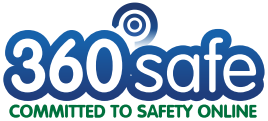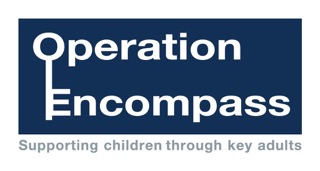
Safeguarding
At St. Peter’s Church of England Primary School, we are fully committed to upholding the highest standards in safeguarding and child protection. We follow all Local Authority guidelines and ensure we are informed by the most up-to-date safeguarding practices. We recognise that safeguarding is everyone's responsibility across our school.
We support all children by:
- Promoting a caring, safe, and positive environment within the school
- Encouraging self-esteem and self-assertiveness
- Effectively addressing and preventing bullying
We recognise that some children may be at risk of neglect or physical, emotional, or sexual abuse. Our staff are well placed to identify signs of abuse and respond appropriately.
To protect our children, we aim to:
- Create an atmosphere where every child feels safe, secure, valued, and heard
- Recognise the signs and symptoms of abuse
- Recognise the factors that may affect a child e.g. Adverse Childhood Experiences
- Monitor the well being, attendance and behaviour of our children
- Respond swiftly, appropriately, and effectively to any concerns
Our Designated Safeguarding Leads (DSL's)
Mrs A Dodd - Headteacher
Mrs D Parker - Deputy Headteacher / SEND Leader and Deputly DSL
Mrs S Rigby - Family and Pupil Support
Reporting a Concern
If you are concerned that a child is being harmed, is at risk of harm, or a child makes a disclosure to you, please contact a member of our safeguarding team immediately:
IF YOU ARE CONCERNED, PLEASE REPORT IT STRAIGHT AWAY.
If you are working in our school and have a concern about a child, please speak to the DSL or Deputy DSL and record your concern on CPOMS with full details before the end of the day.
If your concern is about a member of staff, please contact the Headteacher. If your concern is about the Headteacher, please contact the Chair of Governors.
If you are a parent reporting a concern please contact school and discuss with a DSL. All discussions are confidential.
Alternatively, anyone can raise concerns by contacting:
- NSPCC: www.nspcc.org.uk
- Lancashire Children's Services Duty Team: 0300 123 6722
Safeguarding Policy
Operation encompass
In conjunction with Lancashire Police, St. Peter's C. of E. Primary School is involved in a national initiative called "Operation Encompass". The purpose of Operation Encompass is to safeguard and support children and young people who have been involved in, heard or witnessed a domestic abuse incident.
Following an incident, children will often arrive at school distressed, upset, worried and unprepared. Operation Encompass aims to ensure that appropriate school staff are made aware early enough to help and support children and young people in a way that means that they are safe and included.
This is a valuable initiative that means that we help and support children and their families within our school when they need us most.
You can find out more information by visiting the Operation Encompass website below (click the logo below) or by contacting Mrs Dodd at the school.
Online safety

Online Safety at St. Peter’s C. of E. Primary School
At St. Peter’s Church of England Primary School, we provide a balanced and relevant approach to the use of technology across all key stages. Our pupils have access to a range of devices including laptops and iPads, and are encouraged to make the most of the opportunities technology offers for learning, creativity, and communication.
We are committed to ensuring that children learn in a safe and secure digital environment. Our school uses robust filtering and monitoring systems to protect pupils from harmful or inappropriate online content. These systems are reviewed regularly and managed by designated staff in line with the latest Department for Education (DfE) standards
Filtering prevents access to unsafe content, while monitoring helps us identify and respond to concerning behaviour or risks, whether related to cyberbullying, online grooming, or exposure to misinformation.
Online safety is embedded throughout our curriculum, particularly in Computing, PSHE, and Relationships and Health Education. Pupils are taught how to use technology responsibly, how to recognise online risks, and how to seek help if something worries them. We focus on building the knowledge, behaviours, and resilience children need to navigate the online world safely, both in school and at home
Working Together with Parents and Carers
We believe that online safety is a shared responsibility between school and home. While we take every measure to protect children during school hours, we ask parents and carers to play an active role in safeguarding their children outside of school.
We encourage all families to:
- Monitor their child’s online activity regularly
- Set up parental controls and filtering on home devices
- Talk openly with children about their online experiences
- Stay informed about the apps, games, and platforms their child is using
- Report concerns to school staff if they notice worrying behaviour or content
If you need support or advice, please speak to a member of our safeguarding team.
We also recommend visiting trusted resources such as Childnet, Internet Matters, and Educate Against Hate for practical guidance.
Together, we can help children enjoy the benefits of technology while staying safe, respectful, and responsible online.
Online Safety Information
In this section of the website we will keep parents/ carers informed on how to keep their children safe out of school. We will highlight the risk and measures parents can put in place to keep their child safe online.
Online Safety Guides
Why do we need a filtering and monitoring system?
The internet is now used daily in education and has become fundamental. It acts as a key learning tool for children however, it can also be an area for concern due to the nature of potentially harmful content available online.
There are many reasons why filtering and monitoring are required. In school the purpose is to ensure that children do not access unsuitable/inappropriate content. One example is around radicalisation. The prevent duty is a statutory obligation for schools to keep children safe from the risk of radicalisation and extremism. As a school, we are aware of the risks posed by the online activity of extremist groups, and how social media is being used to encourage young people to travel to certain countries.
Content filtering works by applying specific parameters to content retrieved via the internet, restricting access to certain materials on websites, Apps, emails or other suspicious items. It can be a hardware or software solution and can often be part of a firewall setting.
Monitoring combined with content filtering alerts for any activities that need to be acted upon, but the information is also used to determine which sites and keywords need to be filtered out. For example, if a new craze appears, the monitoring and filtering system will help us know what associated terms the children are searching for, and what websites they are accessing.
To safeguard and promote the welfare of our children, we provide them with a safe environment in which they can learn and flourish, by ensuring that they are not exposed to any online risks associated with using the internet. We have comprehensive filtering and monitoring systems in place for all devices used in school, and regularly review their effectiveness. Our school uses Netsweeper and this is monitored by our Senior Leaders and Governing body.
We also use Project Evolve as part of our curriculum for teaching online safety.
For more information on how to monitor and use filtering at home, click on the links below that discuss parental controls:
Promoting Safety and Resilience at St. Peter’s C. of E. Primary School
At St. Peter’s Church of England Primary School, keeping children safe is at the heart of everything we do. As part of our wider safeguarding responsibilities, we follow national guidance to help protect children from a range of potential risks, including exposure to extremist ideas or radicalisation. This is known as the Prevent Duty, and it forms part of our commitment to creating a safe, inclusive, and respectful school environment.
We approach this sensitively and age-appropriately, ensuring that children are supported to develop the confidence and skills they need to make safe choices and understand the world around them.
Embedding Through PSHE and British Values
We embed the principles of the Prevent Duty through our PSHE (Personal, Social, Health and Economic) curriculum and the teaching of British Values. Children learn about respect, tolerance, democracy, individual liberty, and the rule of law—values that help them to become thoughtful, responsible citizens. Through discussions, assemblies, and classroom activities, pupils are encouraged to explore ideas, ask questions, and develop resilience against harmful influences. We provide a safe space for children to talk about complex or challenging topics in a way that is supportive and appropriate for their age.
Staff Training and Awareness
All staff at St. Peter’s receive regular training on the Prevent Duty as part of our ongoing safeguarding programme. This helps ensure they are confident in recognising signs that a child may be vulnerable to radicalisation or developing extreme views, whether this is happening online or in person. Staff are trained to respond appropriately and sensitively, always putting the child’s safety and wellbeing first. By staying informed and vigilant, we can work together to protect children from potential risks and support them in making safe, informed choices.
Advice for Parents and Carers
If you’re ever concerned about changes in your child’s views, behaviour, or online activity—especially if they seem withdrawn, angry, overly secretive, or are expressing extreme opinions—it’s important to talk to them and seek support. Signs to look out for may include sudden changes in friendship groups, increased isolation, expressing intolerance towards others, or accessing inappropriate content online. These behaviours don’t always mean something is wrong, but they can be indicators that your child may be vulnerable.
If you’re worried, please speak to a member of our safeguarding team. We’re here to listen, offer support, and work with you to keep your child safe. You can also find helpful resources and advice through organisations such as Educate Against Hate and NSPCC.
All concerns should be reported to Mrs Dodd (DSL and Prevent Lead)
